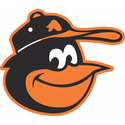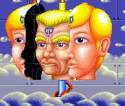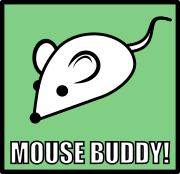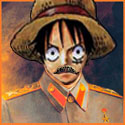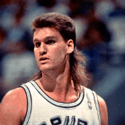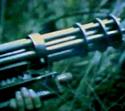|
So I've been hammering at my guitar every day since I've got it back in march yet somehow I've not bought a proper practice amp yet. I'm looking at something like either a VOX Pathfinder 10 or a Marshall MG10, anybody got any recommendations either way?
|
|
|
|

|
| # ? May 16, 2024 09:00 |
|
I haven't owned an MG myself, but I believe the general opinion is that is a piece of garbage and that there are much better beginner amps for the same price. I haven't tried the VOX.
|
|
|
|
I like my Fender Mustang I. It's very reliant on the included "FUSE" software to utilize the full potential of the thing (there are presets and physical knobs, but you don't have access to everything without the software), but once you have your amp connected to your computer and the software running, you can simulate all sorts of combinations of amp types and effects. It's pretty nice for experimenting with all the effects that you might've heard of, so it's good if you want to try out different styles (metal, country, classic rock, jazz, etc.).
|
|
|
|
MurraneousX posted:So I've been hammering at my guitar every day since I've got it back in march yet somehow I've not bought a proper practice amp yet. I'll toss in that I've gotten a few different amps in the lower end practice-amp arena. The goddamn BEST one I've picked up is the Fender Champion 600. Managed to snag one for $120 from guitar center by haggling, and its a one-trick-pony, but it has really good sounds for the price. And it sounds _out of this world_ with a telecaster. I am mildly obsessed with the 50s
|
|
|
|
meatcookie posted:I can't recommend the Digitech DF-7 highly enough. Go try one out, you'll love it. Seconding this. Not only does it do an awesome thrash/shred/metal tone, it has a ton of other tones and distortion models and has ton of a variety. It's been my go-to for most all types of distortion.
|
|
|
|
MurraneousX posted:So I've been hammering at my guitar every day since I've got it back in march yet somehow I've not bought a proper practice amp yet. I like the Pathfinder as a robust little amp for carrying around. A couple of the people I jam with have picked one up for the same thing after trying mine.
|
|
|
|
Pocket Billiards posted:I like the Pathfinder as a robust little amp for carrying around. A couple of the people I jam with have picked one up for the same thing after trying mine. Thanks for the recommendation, I picked one up after work today. I gotta say it sounds pretty drat good for the price! That and the diamond stitching gives me a case of the  's. 's.Thanks anyways to the other guys too, the Mustang looked fun but a little gimmicky and the Champion wasn't quite what I was looking for.
|
|
|
|
I'm shopping around for a fairly good twangy-country sounding electric guitar, something that I can use for learning bluesy jazz, folk, rockabilly and some 50's style songs. Right now I'm looking at the Gretsch G5122 (from the Electromatic series) and I like the sound and the look, especially the Bigsby trem. Am I making a horrible mistake? Is there something better/cheaper out there? Is something horribly wrong with the Gretsch offerings? Is the floating bridge really annoying? I'm looking around for other options but my experience with electric guitars is pretty low so I'm not sure which brands/models are trustworthy.
|
|
|
|
http://store.guitarfetish.com/Xaviere-XV-950-Rockabilly-Hollowbody-Guitars_c_311.html Cheaper? I can say yes! It's not got a Bigsby, but you can mount one. Even has psuedo-Filtertrons. Half the price, 7/8th of the quality. http://www.youtube.com/watch?v=BOJ03LyH-Us&feature=related
|
|
|
|
Hey guys, I am planning to buy my first guitar, and stumbled upon a used one that sounds like a good deal. Its a Epiphone LP Custom, Chinese built with Gibson pickups. Now the part I am not sure about. The guitar was dropped at some point and the owner got it fixed. I don't mind at all, as long as long as the problem (image behind link) is only aesthetic. What do you think? It would cost me 200€ (lefty).
|
|
|
|
Twangy country=Telecaster in my book. A Tele can do anything too, so not just a one trick pony.
|
|
|
|
SSJ2 Goku Wilders posted:I have a good as new Boss Metalcore pedal that I've used like twice over the last 2 years. I bought it for slightly more than a hundred euros, you can have it for half that if you want it. Thanks for the offer but I'm broke as hell at the moment, since I just bought a Line6 Spider IV and a Barrcuda Les Paul w/ dual gold humbuckers. I dunno how to play, but it sure is a loving fun instrument. I haven't put it down for more than an hour since I bought it.  Since I'm talking about it, I guess I'll edit in some photage.  My very first electric + guitar amp. Faffel fucked around with this message at 01:10 on May 13, 2011 |
|
|
|
Does anyone have experience with the Xaviere XV-900 from guitar fetish? http://store.guitarfetish.com/XV-900-Semi-Hollowbody-Flame-Maple-Alnico-Fat-Pats_c_154.html How does it compare to the Epiphone Dot, the Agile AS series, etc?
|
|
|
|
Not as good as a good Dot, better than a bad Dot. Frets will need dressing, but the hardware is excellent. Especially the pickups. Inside, it may be a bit messy if you look in the F-Holes.
|
|
|
|
coolbian57 posted:Hello everyone, I was wondering if an experienced guitar player could help me with some things I am a little confused about when it comes to mastering guitar. Most of my guitar playing career has been spent playing classical style guitars, or steel string acoustic guitars. For this reason, I do not have much experience with amplification, effects pedals, etc. However, I have a fairly nice guitar and amplifier. I have a Schecter Omen 6 guitar, and a Laney Hardcore Max 15w Amplifier. My question has to do with effects pedals. Basically, from what I have read online, I have learned that I have a Solid State amplifier, and that this alters my sound. I have read that the recommended pedal for me to buy now would be a distortion or overdrive pedal, so that I do not have to use the overdrive setting or way up the gain on my amplifier. This will result in a crunchy, yet still 'good' sound. It won't sound too 'bunched up', and there will be less useless noise in replace of crunch. Correct me if I am wrong here, or if you have other suggestions that would be awesome as well. I don't know much about Delay, Reverb, or other types of pedals, and a primer on those would be good as well. I know that I would love to be able to have a sweet Surf Rock type guitar tone, which means I will need some reverb. I guess this is a long winded question, but really my overall question is what guitar pedals should I get if I have $100-$200 to spend, and I want to have both a good clean guitar tone and a good distorted tone for metal. Well, if you are after cheap, then it's tough to beat Behringer. Most of their pedals are exact clones of other pedals, just made cheaply in China. They even have clones of those weird, old, discontinued Boss pedals that cost a ton these days. For metal distortion on the cheap, I would get the Behringer HM300. It's a clone of the Boss HM-2, which is my favorite Boss distortion of all time. It's kind of love-it-or-hate-it though. Here are some examples of the HM-2 in use: http://www.youtube.com/watch?v=cIw-kARm4j4 http://www.youtube.com/watch?v=hEMlEts2hZA If that doesn't do it for you, get the Behringer DM100. It's a Boss DS-1, MXR Distortion + and a Proco Rat all in the same pedal. You will like at least one of those, and if not, it's dirt cheap anyway. As for delay and reverb: Behringer EM600 and RV600. Clones of the Line 6 Echo Park and Verbzilla. Seriously good values for the price. The Verbzilla's Cave setting is just awesome, and the spring setting is perfect for surf.
|
|
|
|
Is JustinGuitar a good site? I'm going to go through the Beginner's Course, but I was just wondering if it is a good way to start learning the layout of the neck and prepare myself for playing the kind of music I want to play (metal, stoner rock and poo poo). I know the basic techniques of playing from bass, but I never enjoyed playing bass very much and thus never got to play any good riffs or songs, so I'm practically a total beginner
|
|
|
|
Faffel posted:Is JustinGuitar a good site? Yes. You can probably learn all the basics (and more if you're really patient) from his site alone. Once you're comfortable, start listening to songs and playing them by ear and writing your own stuff and making up your own colorful chords and you'll have loads of fun. Just make sure to keep stretching your ability little by little and don't become complacent, otherwise you'll start playing boring repetitive music.
|
|
|
|
Faffel posted:Is JustinGuitar a good site? I'm going to go through the Beginner's Course, but I was just wondering if it is a good way to start learning the layout of the neck and prepare myself for playing the kind of music I want to play (metal, stoner rock and poo poo). I know the basic techniques of playing from bass, but I never enjoyed playing bass very much and thus never got to play any good riffs or songs, so I'm practically a total beginner I started less than 2 months ago and I've been using his site pretty much exclusively. For a service that's available free it's actually surprisingly comprehensive. Just the other day I was looking at a music school in my area to get a few lessons, only to find out that I'd already burned through their entire 3 month beginner syllabus.
|
|
|
|
MurraneousX posted:I started less than 2 months ago and I've been using his site pretty much exclusively. For a service that's available free it's actually surprisingly comprehensive. Just the other day I was looking at a music school in my area to get a few lessons, only to find out that I'd already burned through their entire 3 month beginner syllabus. Very nice. I'm giving my hands a break while practicing chords right now. I assume it it's normal to get fretting hand exhaustion and little string marks in your fingers on your first weeks?
|
|
|
|
Soon your fingers will become tough, like the underside of a camel does from laying on the ground
|
|
|
|
Faffel posted:Very nice. I'm giving my hands a break while practicing chords right now. I assume it it's normal to get fretting hand exhaustion and little string marks in your fingers on your first weeks? When I first started my fretting hand got tired quickly in large part because I was pushing the strings down too hard. Once I started holding the strings down just enough for them to ring out properly (this is one of Justin's early lessons), I could do chord changes for an hour at a time with no problems.
|
|
|
|
My hands are doing okay now - the fingers are a bit sore because my ring finger is ALWAYS pressing down my high E string unless I contort my hand in bizarre ways. I'm just working on chord changes and some scales now... I'm staying away from playing music because any songs I can play with such poor skill are songs I don't really listen to. I hope I can work my way into the kind of music I like in the next few months. Stuff like stoner, doom and drone music would be awesome to play, but I suck too much right now!
|
|
|
|
Faffel posted:I'm just working on chord changes and some scales now... I'm staying away from playing music because any songs I can play with such poor skill are songs I don't really listen to. I hope I can work my way into the kind of music I like in the next few months. Stuff like stoner, doom and drone music would be awesome to play, but I suck too much right now! That's not necessarily true, a lot of that music is about the sound and the atmosphere and isn't technically difficult at all (like say some Earth songs). There's a skill to making it sound good, but that's technique that comes from trying to play the material. Keep up with your practicing, but don't be afraid to give things a try and have some fun! You are learning guitar so you can play music, after all
|
|
|
|
http://www.youtube.com/watch?v=QVg0-ECnLHI Is this a good beginner's song? It looks pretty easy, the only hurdle being the speed. I sound like poo poo with that chord fingering, but I figure if I practice I can get that riff down pretty well. My guitar sounds way lighter and nicer than that guy's, not sure what I can do to fix that with my Line6. Any tips for not sounding like poo poo when I strum out those chords and avoid making tons of scratching sounds as I slide up and down the neck? E: This song is tuned so low I get fret buzz on my low E constantly and the power chords just sound dischordant and lovely when I do them. My lowest string should be tuned to B for that tuning, right? It does not sound right at all. Faffel fucked around with this message at 05:00 on May 17, 2011 |
|
|
|
that speed is gonna be a big hurdle. You're gonna want to learn the riffs (well) and then speed up. All the intro stuff should be OK. Tuning to that is pretty interesting for a beginner unless you're really patient or play detuned a lot.
|
|
|
|
Faffel posted:http://www.youtube.com/watch?v=QVg0-ECnLHI Tuning that low you'll want to look at heavier-gauge strings to eliminate the floppiness, then you may (probably) need to re-intonate and that should take care of the discordance. The scratchiness when sliding up/down on wound strings is just one of those things. It's your calluses interacting with the string windings to make a raspy sound. Listen to Blue Oyster Cult - Burning For You and you'll hear it all over the place. What do you mean when you say your guitar sounds lighter and nicer?
|
|
|
|
meatcookie posted:What do you mean when you say your guitar sounds lighter and nicer? I imagine he means it sounds more Beatles than beelzebub. To answer the guy's question, he's running it though at least one pedal I expect, which is gonna sound a lot different than your amp's basic overdrive setting. I wouldn't worry about it for now, it's more important to get the song note perfect, the 'sound' can come later. RillAkBea fucked around with this message at 10:12 on May 17, 2011 |
|
|
|
Faffel posted:http://www.youtube.com/watch?v=QVg0-ECnLHI You basically need to retune your entire guitar for that song (it's actually almost a 7-string guitar in standard tuning, but played on a 6-string tuned to match the bottom 6 strings on the 7-string). Like people have said it actually involves a fair amount of messing with your guitar, and they're not generally meant to go that low. I have my guitar tuned down 2 half steps to D and even with heavier strings they're not tight enough, and squeezing slightly too hard will change the pitch significantly. That guitar is tuned down 5 half steps. Not really a good beginner thing! That said, a lot of that kind of music does use downtuned guitars (or 7-strings at least). Ok, couple of things - you need distortion on your guitar. I don't know what Line6 thing you have but if it has amp models, turn it to a high-gain one. If it has distortion types, same deal. Turn up any gain knobs. Volume knob up on your guitar, try different pickup selections too. It needs to be loud! You can adjust to taste later (the tone knob on your guitar might be a quick fix, if you have one). The scratching noises are a technique thing, and they're especially apparent when you have the gain up - it amplifies everything. You need to lift your finger off the string when you're moving it, unless you're actually doing a slide (as in holding the string down and sliding the note to another fret). It's tempting to keep your finger in contact with the string as you move your hand, and that friction is what causes the squeak. There are things you can do to counter it (different kinds of strings, stuff you spray on, a noise gate pedal etc.) but really you're better off working on your technique This might be helpful for learning to control noise (really a necessary skill when you're playing at high gain): http://www.youtube.com/watch?v=v-6V_28w71s&feature=related I tried to find a video on avoiding squeaking but it seems really hard to find anything about it, even when people ask about squeaking everyone seems to say 'fix your technique' without saying how. Basically, it's about moving your hand from position to position and doing it as quietly as possible, which might seem at odds with aggressive music, but there you go! Start slow and you'll be able to build up your speed while keeping your technique clean. What this guy has to say is worth remembering too: http://www.youtube.com/watch?v=FbB-ItW2EiE&feature=related Otherwise the video you linked is using power chords, basically the same shape moved up and down the neck, and they're everywhere in heavy guitar music. Getting comfortable with them will definitely help you!
|
|
|
|
Thanks for that awesome post! I tuned my guitar down to Baritone, but I tuned back up to standard a while later. I'm more entertained just practicing chord transitions, scales etc and generally trying to make myself able to make a decent sound come out of my guitar, rather than practicing a band's tabs right now. I'm just hoping doing lots of technique drills for the first month or so won't gimp me when I do want to play actual music; today marked my bringing a metronome into my chord changing and scale playing and I've been doing the three major and three minor chords from the JustinGuitar beginner series. My biggest hurdle right now is that I'd like to write my own riffs. I find music theory documents really batter my brain and while these theories are easy to apply to piano, I'm finding it harder to apply them to a six-stringed instrument. Once I get really comfortable and nice-sounding on changing between these six chords and a few scales, I should have enough money saved up for some lessons. If anyone has more advice for actually playing the instrument without playing somebody else's tabs, I'd really love that kind of advice. I have a feeling the answer will be "read Music Theory for Beginners from the OP", though. I've played some piano (I could play the Minuet in G melody), I also own a bass and barely know how to play it. I have a little knowledge here and there, but this is my first attempt to really get serious and make some music. Right now I can do decent, but sometimes (30-40%) janky sounding transitions between the D E and A major chords and I'm comfortable with the positioning for E, A and D minor but not with the transitions. I can accurately strum chords, but coming from bass it's very hard for me to aim my pick and pick out scales. I think this is my sixth day playing the instrument, so I'm really barely into the waters but I want to make sure I'm taking the right approach. Also, as for the Line6 it's a Spider IV 15Watt, which is a four-channel amp. It can do metal distortion, but it sounds like absolute poo poo in my hands so I either play un-amplified or on the clean channel for practicing. I bought this amp as something to grow into, so hopefully I can do just that and make use of its metal tones. Faffel fucked around with this message at 23:34 on May 17, 2011 |
|
|
|
How do you mean it sounds poo poo in your hands? The actual tone isn't going to be that great, but if you mean the noise and random BWAAA sounds when you accidentally bump a string then that's all part of the learning process! The fact is that's how an amplified and distorted guitar sounds and responds, and your playing technique involves keeping that under control. You'll often hear people telling you to practice with high gain, because it makes every little mistake very obvious and allows you to hone your skill, instead of masking it. That's why I linked that first video too, it's about controlling that sound by muting the strings you want to keep quiet. Worth practicing that way as part of your routine, doesn't have to be all the time - when you get to the Minor Pentatonic scale on Justin's site you can work it in. I'd really recommend you start getting as familiar with the fretboard as soon as possible, that way anything you learn about theory will make as much sense as it does for piano. There's a link on justinguitar, but honestly I think this explains it better and you can extend that to your extra two strings (well the high E is the same as the low E anyway). There's also a Fretboard Identification exercise here that you can customise to your level - maybe focus on the first 5 frets and build from that. Definitely learn how music theory works, but try to avoid learning from tabs (make your own though! It's a great listening exercise). What I'd recommend is trying to find the root notes of a progression in a song you like - just a single note at a time. Like this: code:code:code:
|
|
|
|
I meant it sounds very noisy and makes BWAAA noises and all that stuff... you're right, though, and that playing with high gain will really make me learn to mute well really quickly, in order to save my ears. I have been getting used to the notes on the fretboard just by learning what notes are in chords as well as using the MusicTheory.com fretboard exercise. I don't know the frets by heart, but I can get the notes pretty quickly just by going through the musical alphabet and get 90% or so accuracy. I also KIND of understand musical theory, but the problem is that I find 99% of the explanations for anything more advanced than intervals is extremely clumsy. The link in the OP doesn't make any sense at all when it explains the circle of fifths connection to playing in keys. If you have any links that give you the most basic music theory required in order to make your own scales and poo poo on guitar, I'll eat it up. My friend has kind of admonished me for playing tabs and encourages me to make my own scales, but I don't really know how. As for picking root notes out of a song... well, I can try I guess. I just find it really hard to figure out if my intuition is correct or not. Is that one of things where I just have to wing it and hope I'm right, letting my ears improve over the months and years? Thanks again for all the advice. I'm really enjoying practicing and I think I'm coming off as a bit negative, but the musical world is a scary place. I'm working at getting out of the mindset of doing things right and wrong, because it seems like right and wrong have different definitions when you're playing music; especially the psychadelic and stoner poo poo that I like. I'm going to give some of your advice a shot next time I play and maybe try to search out some good theory articles that focus more on getting me off on the right foot.
|
|
|
|
Yeah just try picking out the notes, play them over the song, listen and see if it sounds right... it's all about the listening. Even if you get it wrong, working out that it's wrong is all part of the process of improvement. It's like anything else, practicing will just make you better at it. Don't be afraid to noodle all over the fretboard until you think you've hit the right note. I don't know any guitarry theory sites offhand, this looks ok at a quick glance. Basically here are your notes: A B C D E F G A B... You have the letters A to G repeating over and over - once you hit G you're back to A. Inbetween each of these you have another note: A A#/Bb B C C#/Db D D#/Eb E F F#/Gb G G#/Ab A A#/Bb B... So between A and B you have a note called A# (A-sharp, one note higher than A) or Bb (B-flat, one note lower than B) - don't worry about which name to use at this point, use either. This is the case for all the other notes EXCEPT between B and C, and between E and F - there's no note between those pairs. If you know your intervals then the jump from one note to the next is a semitone/half step/half tone or whatever, which corresponds to moving one fret up a string. If you play an A at the 5th fret on your E string, the 6th fret is the next note (A#/Bb), the 7th is B, the 8th is C (remember, no other note between B and C!) and so on. A jump of two notes is a whole step/whole tone/or sometimes just 'tone' or 'step'. That's two frets on your guitar  Anyway, here's a major scale: W W H W W W H Those letters correspond to the intervals - whole and half steps, jumps of two notes or one, two frets or one. Pick a note - let's start with C because it's a classic: A A#/Bb B C C#/Db D D#/Eb E F F#/Gb G G#/Ab A A#/Bb B C C#/Db D... So we start on C, jump a whole step (two notes) to D, from there jump a whole step to E, then a half step to F (remember that's one note higher than E), and so on until you make that last half step and end up back on C. So you get: C D E F G A B C And that's the C major scale! Do that starting with any note you like, and you'll end up with the major scale for that note. Try starting on D - you should get D E F# G A B C# D. What makes the sound of a major scale are these hops from note to note in a certain pattern, no matter which you start on. It also means that you can start this anywhere on the guitar, hop up the neck in the same pattern, and you'll get a major scale. If you look around the internet you'll see different ways of walking through this pattern of intervals across several strings. It's better if you learn the notes though and don't just rely on using the pattern itself when you're playing. This is getting long now so I'll just say this about the Circle of 5ths - you saw how the C major scale doesn't have any sharps or flats? The notes in the C major scale are the notes in the key of C major, which is at the top of the Circle. Move clockwise and you hit G. If you look along you C major scale, what's the 5th note? It's G right? That's why it's called the Circle of 5ths. If you work out the notes in the key of G (the notes in the G major scale) you get: G A B C D E F# G This is exactly the same as the C major scale, except the 7th note is sharp (F# instead of the F in the C major scale). If we go clockwise to the next note on the Circle, it's D - which is the 5th note of our G major scale. Work that one out and you get: D E F# G A B C# D Again those are the same notes as where we've just come from (the G major scale) except with the 7th note sharpened as well (C#). What this means is that the key of C has no sharps, G has one, D has two, A has three... as you move around clockwise you're adding another sharp, in a particular order. There's more to it (like what happens when you go the other way) but this is running very long - basically the circle is a really really clever way of expressing a lot of musical concepts in a single diagram, and as you learn stuff you'll start to go 'hey yeah!'. I never actually learned it for yeaaaars so don't worry too much since you're only six days in!
|
|
|
|
Haha, thanks for the primer - I knew all about steps and the major scale and all that, but the Circle of 5ths info was golden and explains it much more effectively than that article on Ultimate Guitar did.
|
|
|
|
Ah ok - yeah honestly the thing with the major scale and the steps is all you need if you want to make scales on your guitar, you can work out any major scale and then play through that note sequence on the neck and that's it. You could just learn the box patterns so you learn that you start here and then the next note is here and then here on this string and so on, and then you don't even have to know the notes (beyond your starting one) but like I said it's better to learn them as you go. The more directions you understand it from the more sense it'll all make. Here's a couple of other interval patterns: W H W W H W W (minor scale) W+H W W+H W W (minor pentatonic - you're basically skipping the 2nd and 5th notes) W W H+W W W+H (major pentatonic - skipping the 4th and 7th) You can also build the chords from a key by taking every second note - so to build triads in the key of C: C D E F G A B C D E F G... We have: C E G - (skipping D and F) which is C major (or just C) D F A - D minor or Dm E G B - Em F A C - F major G B D - G major A C E - Am B D F - B diminished and you can use those to write a song. A lot of songs break these 'rules' though and working out why is part of everyone's magical adventure in music. You can write a song with these though - works for any of your keys, and you can noodle over the chords with your scale. You can also add more notes too - like if you add a fourth (skipping a note as usual) you get CEGB which is Cmaj7, DFAC which is Dm7 and so on. These seventh chords are pretty common. More than that and you start to hit jazz territory (not that you won't use the feistier chords sometimes). And if the Circle of 5ths thing is useful to you, I'll just say that if you go back the other way (counter-clockwise) it's called the Circle of 4ths - if you take your D major scale D E F# G A B C# D And go to the 4th note, you get G which is the next note along the circle, and which you know has one less sharp. You actually flatten the 4th note in your new scale, so G A B C# D E F# G becomes G A B C D E F# which is your G major scale (you can also look at it as flattening 7th note in the scale you're moving from if you like). Remember flattening a note means going one note lower - if you sharpen D (go one note higher) you get D#, which is the note higher than D. If you flatten the note D# you go to the note lower, which is D. If you flatten D you go to the note below D, which is Db. It's a bit like D# being D+1, if you flatten it (-1) you get D, flatten again and you get D-1. Anyway this is what happens when you're at the key of C and you go anti-clockwise on the circle, along the circle of 4ths - the 4th note is F so that's your next key. You flatten the 4th note on your new scale (which was the 7th note on your last one): F G A Bb C D E F so B becomes Bb. The key of F has one flat. The next key is the 4th again, so Bb: Bb C D Eb F G A Bb The 4th gets flattened, and now you have two. So the key of Bb has two flats. What you might have noticed is that keys either have flats or sharps - not both. Each key has a specific number of either flats or sharps, and in turn a specific number of flats or sharps implies a specific key. This is how musicians can look at a musical score and say 'ah, this is in Bb major' - if they see two flats in the key signature, they know what it is. This is also (at least partly) why we call a note either (say) A# or Bb. We could write the F major scale as: F G A A# C D E F but now we have two problems - we're no longer using all of the letters A to G (we have two A's and no B), but we also have another key with a single sharp. We wouldn't know if one sharp meant the key of F or G. So we do it this way, and it works pretty elegantly! There's more to the diagram than that, and I've probably really glossed over a lot or made some comments that aren't necessarily entirely true but this is all what I've picked up, and I think it's basically what you need to know. Someone might come in here and tell me about minor key signatures, that would help! EDIT: Jesus christ I cannot stop typing Oh also, this is really great and concise and will help you memorise it too. And if you're into the circle, definitely do this fretboard exercise I mentioned earlier. You'll learn the circle AND where all your notes are (you'll have to work your B string out yourself though  ) )ALSO there's one other thing about the old flats and sharps but I don't want to overload you, if this all makes total awesome sense let me know and I'll throw it your way baka kaba fucked around with this message at 05:17 on May 18, 2011 |
|
|
|
Holy poo poo. You are awesome. I don't really have anything to say to that post except that I'm going to get to work. I don't fully understand the purpose of the Circle of Fifths or much about playing in key, but I'm going to take in the information and figure out how it works when I hit that point 6 months to a year from now where it will hit me. You've probably given me a good week or two's worth of googling and reading with those posts. I have a feeling the Circle of Fifths is going to make it a lot easier to jam. E: Actually, I guess I do understand the uses for it and the theory behind it, it's just that my ability to play is far behind my knowledge of theory. Which is okay, I suppose. I'd rather grow into using things I know than having to play catch up. Faffel fucked around with this message at 05:55 on May 18, 2011 |
|
|
|
baka kaba posted:Great theory stuff Thanks for this. I'm still wrapping my head around theory, and I can tell this is going to help me tons.
|
|
|
|
I'm just going to settle for making the Circle of Fifths my desktop wallpaper and memorizing the pattern for now. E: That circle of fourths fretboard exercise is amazing. I've already got the location of the notes on my E string figured out pretty well. Faffel fucked around with this message at 06:26 on May 18, 2011 |
|
|
|
No problem guys, glad it's helpful  And if anyone wants to correct me on anything that would help me out too, this is basically what I've pieced together and I definitely don't have a total grasp on theory by a long shot. And if anyone wants to correct me on anything that would help me out too, this is basically what I've pieced together and I definitely don't have a total grasp on theory by a long shot.Don't worry too much about understanding everything about the circle, like I said it's a way of expressing a whole bunch of different concepts in one diagram - as you meet the concepts you can refer back to the circle (hopefully in your head!) and go aha Faffel posted:I don't fully understand the purpose of the Circle of Fifths or much about playing in key, but I'm going to take in the information and figure out how it works when I hit that point 6 months to a year from now where it will hit me. You've probably given me a good week or two's worth of googling and reading with those posts. The playing in key thing is (at a basic level) what I showed you above, where you take your C major scale, you work out the chords from those notes (C, Dm, Em, F etc.) and those are your chords and notes in the key of C major. Play any of those chords and you're playing in that key - same for playing any of those notes. It definitely doesn't stop there but that's the thing to get familiar with first! On that note, watch this: Cmaj7 Dm7 Em7 Fmaj7 G7 Am7 Bm7b5 Those are the chords in the key of C major - you don't need to play the seventh versions but the fifth chord (written V, in this case G) really pulls back to the first chord (written I and also called the tonic, C here) if you use the seventh version (V7). Try strumming G7 a few times and then play C, you'll hear it resolve really nicely - da da da dooooooo. This works without the 7th, it's just not as strong (which often sounds better). The reason G to C sounds so good is because it's a descending 5th, which is a really strong sound. Start on G, go down a 5th, and you get C. If you go up a fourth you also get C, just a higher one. What that means is going down a 5th is basically the same as going up a 4th - and that's what the circle of 4ths is. Start on G, go anticlockwise around the circle, and you hit C, which is a 4th above (and a 5th below). So basically, any chord you play will sound great followed by the next one on the circle of 4ths. A -> D -> G for example is really common. Going the other way, on the circle of 5ths (an ascending fifth, or a descending fourth) will sound good too, but not as strong. Try it! Cmaj7 Dm7 Em7 Fmaj7 G7 Am7 Bm7b5 Anyway, you can use that list of chords in the key, as your palette. If you start on C, next chord on the circle of 4ths is F. The next one is Bb - now you don't have a Bb chord, but you do have a B chord (Bdim). Remember how I said we have a chord named after each letter? You can just ignore the sharps and flats, treat it as a B, and use the B chord from your palette. The next one is E(b), our E chord is Em. Work your way around like this and you get: C F Bdim E Am Dm G7 C I left the G as the seventh version, you can mix and match as you like. If you play this progression it leads all the way around, from C through every other chord in descending fifths (or ascending fourths) right back to C again. It has a very strong sound (also might sound very clichéd!) that you'll probably be familiar with. That's one way to create a progression. What you'll find is that every kind of move has a certain sound, so you won't want to move in descending 5ths all the time - but when you want that strong movement you can throw it in. Definitely experiment though! Try messing with any of those key of C chords and see what you come up with. baka kaba fucked around with this message at 00:54 on May 19, 2011 |
|
|
|
Right, I'm in the market for a new guitar. I'm still pretty new but I do love the hell out of playing. Right now I have a Vintage V100 (Les Paul clone), and a Squier Stratocaster (got it off a friend for free, hate the poo poo out of it. I will never play this thing most likely). I'm definetely a fan of the thicker neck that's on the V100, and I had a go of a Michael Kelly Patriot, and thought it was absolutely fantastic to play. Everything just felt spot on, and I was definitely more comfortable playing it than my V100. Before I go and put the cash down on one, is there anything else I should look into that'd be up my street? A thicker neck is very important, and I didn't like the thinner neck on the Strat.
|
|
|
|

|
| # ? May 16, 2024 09:00 |
|
Went to fiddle with the action on my Squier today because I've been getting some nasty buzz, and one of those allen screws is rounded off. loving bites. Is there a chance I can just buy a new screw and put it in, and if so, what size is it, or will I need to just get a new saddle and have a guitar place put it on for me e: Disregard, I got a little place at the mall to order me the part, and they'll restring my guitar and replace the screw at no extra cost. BENGHAZI 2 fucked around with this message at 00:50 on May 19, 2011 |
|
|







